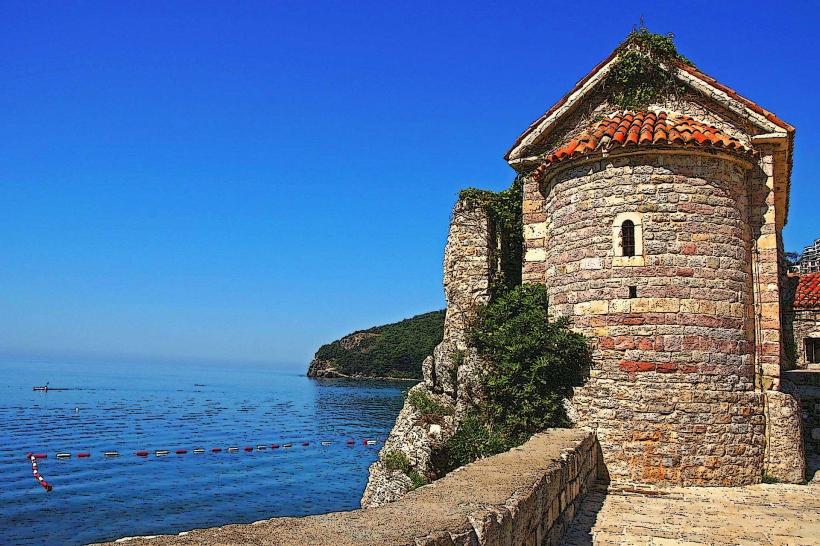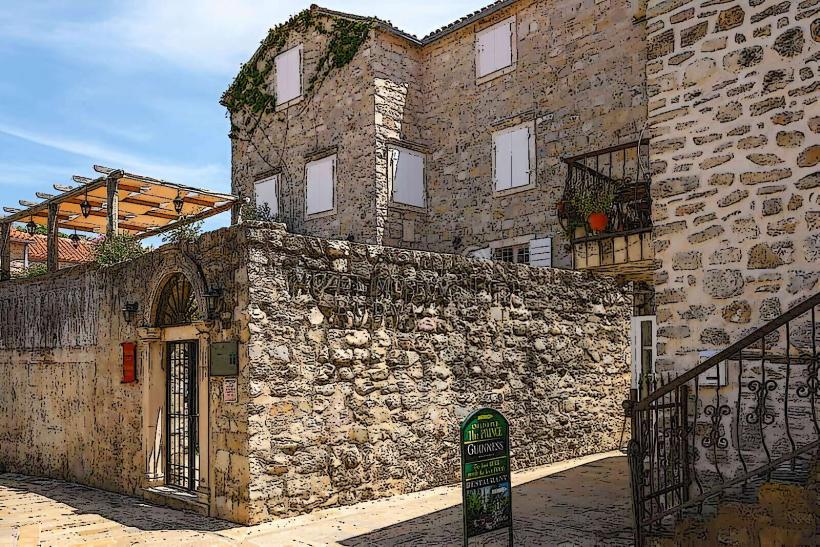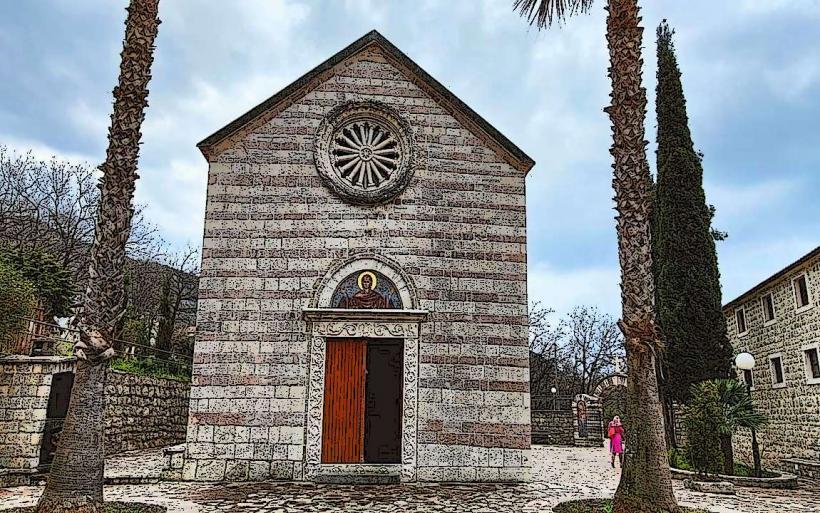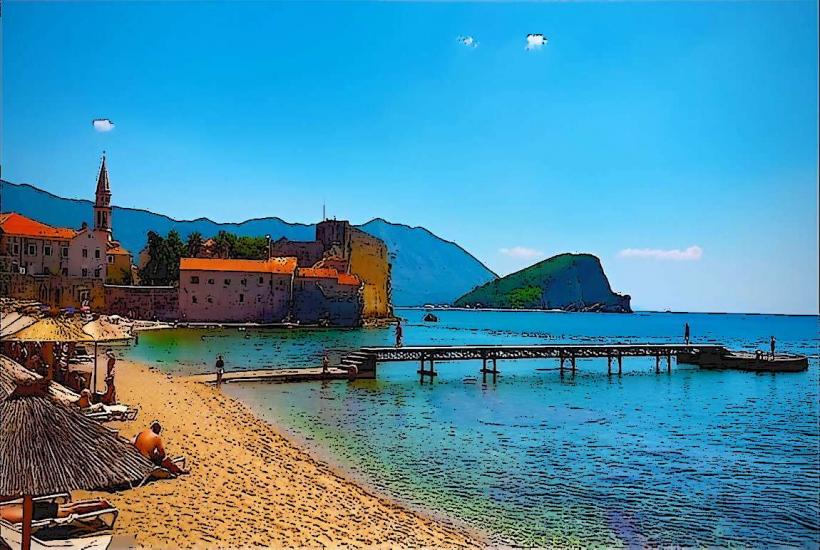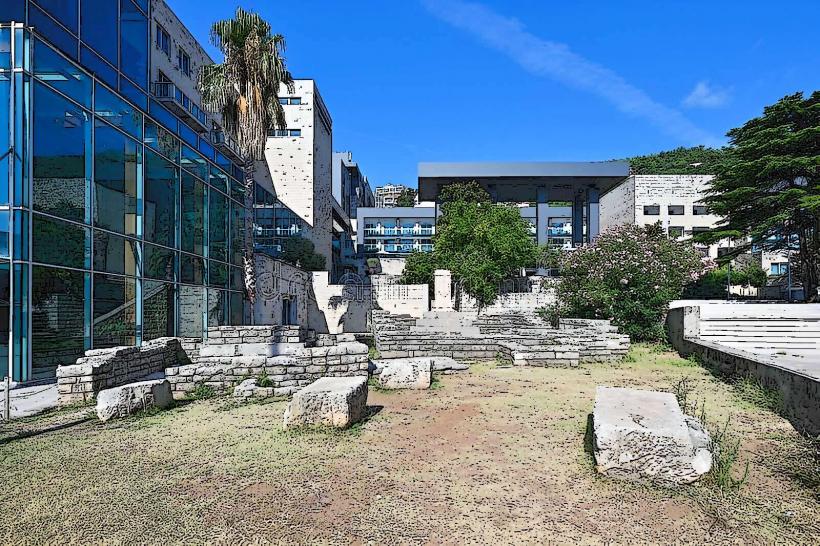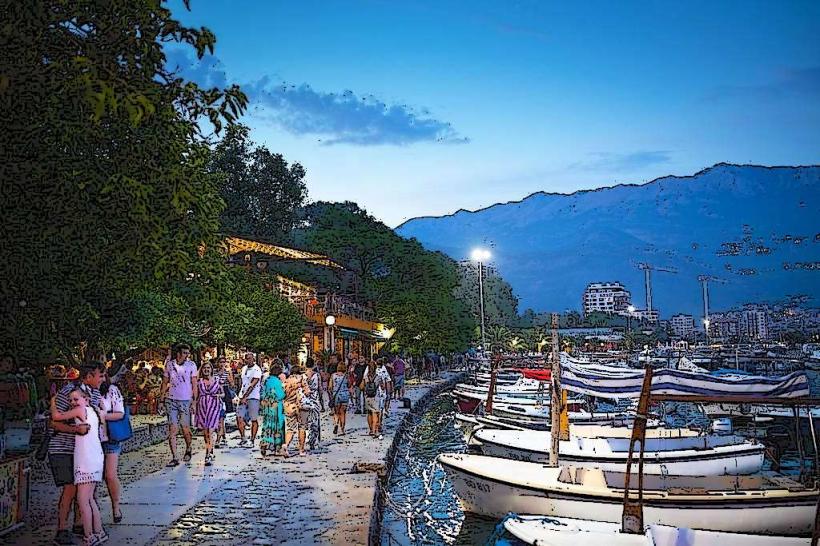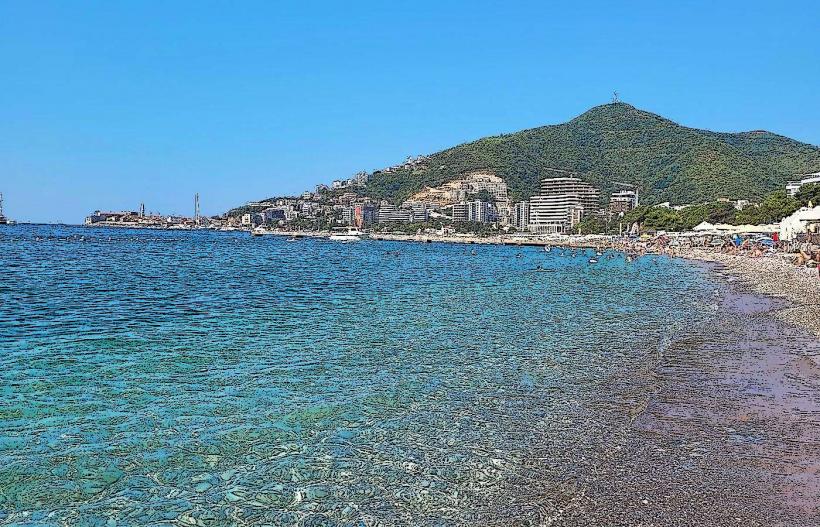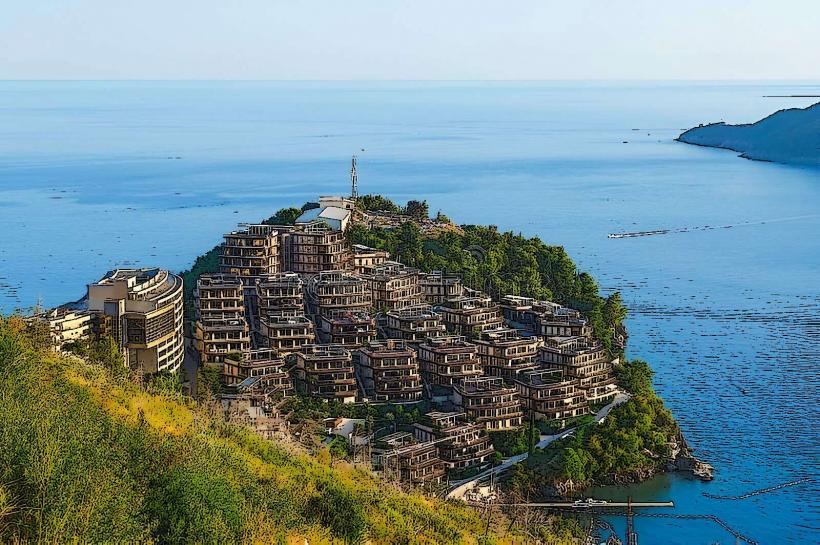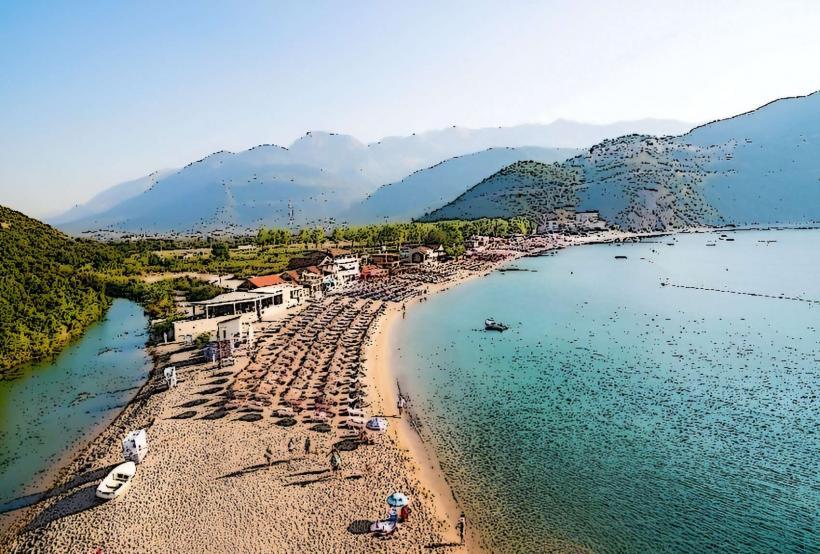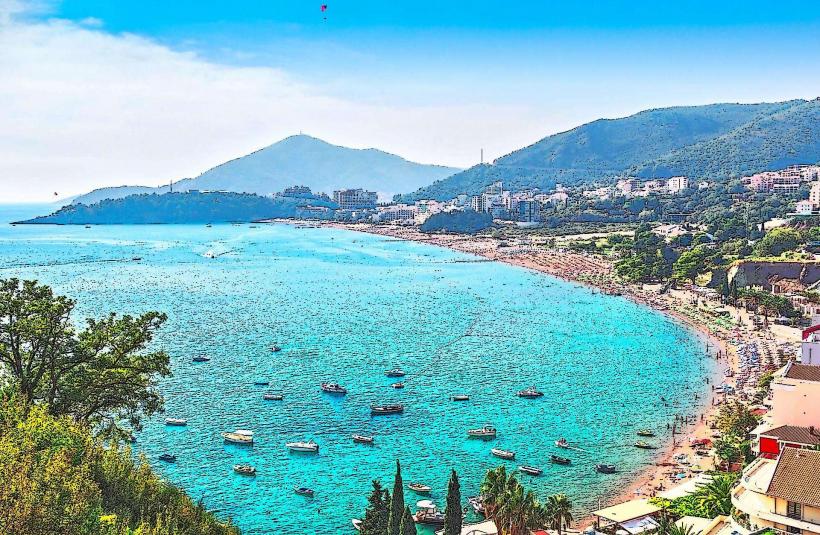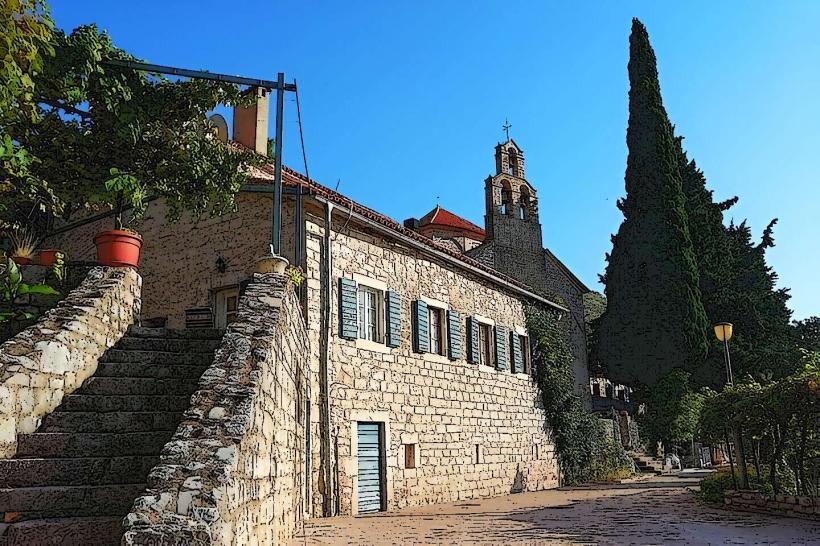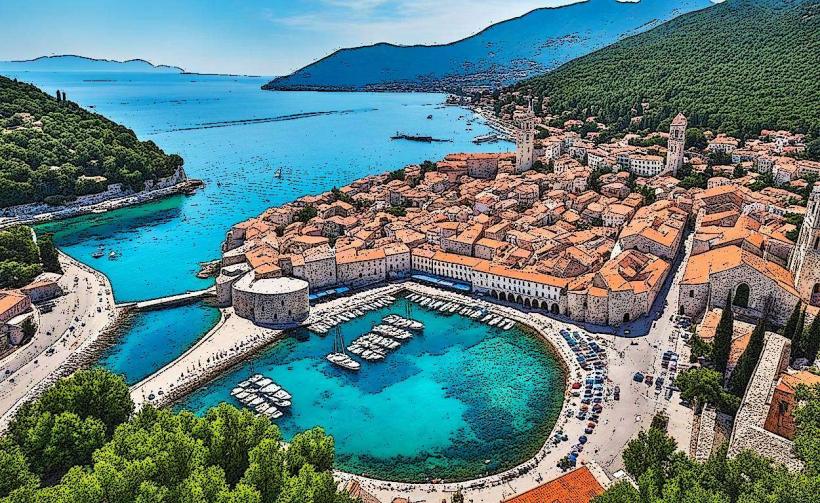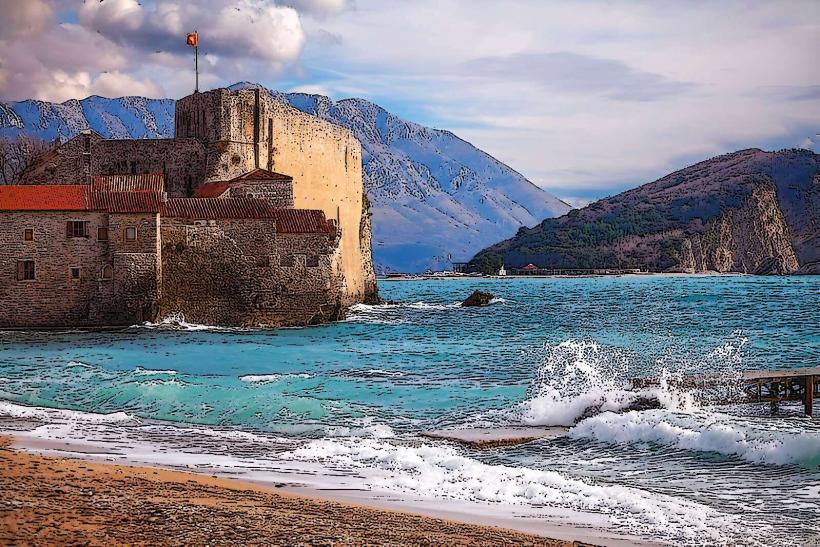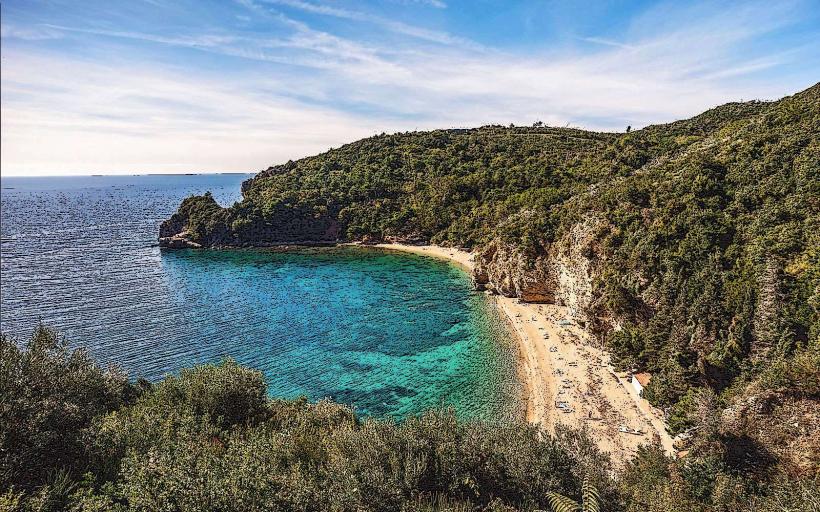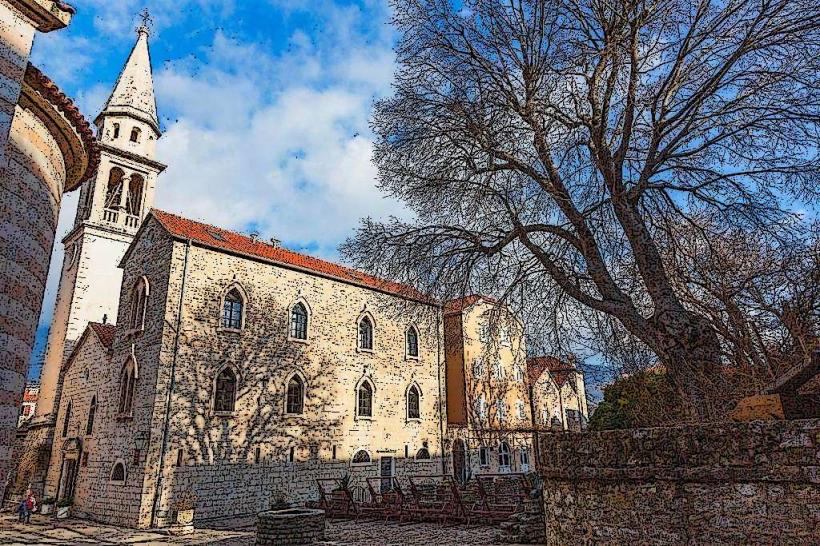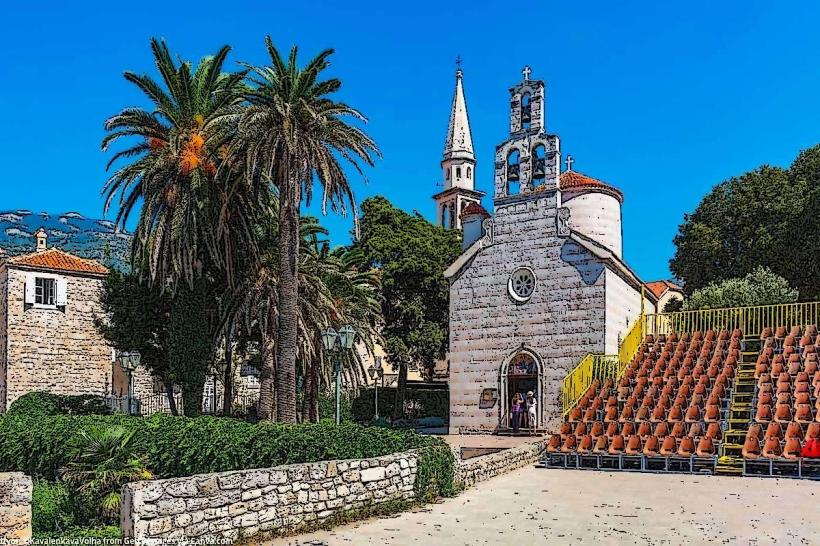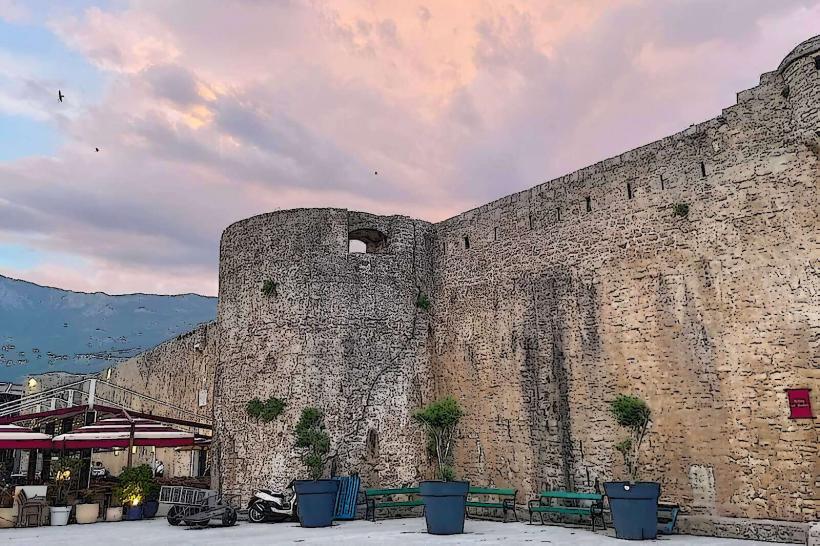Information
Landmark: Santa Maria in Punta ChurchCity: Budva
Country: Montenegro
Continent: Europe
Santa Maria in Punta Church, Budva, Montenegro, Europe
The Church of Santa Maria in Punta is a 9th-century Roman Catholic church situated on the southwestern tip of Budva-old-town_budva" class="underline">Budva Old Town. It is the oldest pre-Romanesque monument in Budva and one of the oldest on the Montenegrin coast.
Visual Characteristics
The church is a small, rectangular stone structure with a single nave. Its exterior is characterized by its integration into the western city walls, utilizing the sea-facing fortifications as part of its structural support. The masonry is irregular, reflecting its early medieval origin. A simple bell-cote sits atop the roof. The interior is currently stripped of most ecclesiastical furniture, as the building frequently serves as a secular cultural space.
Location & Access Logistics
The church is located at the southernmost point of the "Square of the Churches" (Trg Između Crkava), directly adjacent to St. Sava Church and the Citadela.
Access: Pedestrian only.
Status: Frequently used as a gallery or concert hall during the "City Theatre" summer festival.
Coordinates: Approximately 42.2778, 18.8373.
Historical & Ecological Origin
An inscription on the interior wall dates the foundation to 840 AD. It was built by Benedictine monks on the site of an even older structure. The church is positioned on the "Punta" (point), where the limestone peninsula meets the open Adriatic. It has withstood over a millennium of coastal erosion, salt spray, and seismic activity, including the major 1979 earthquake.
Key Highlights & Activities
Historical Inscription: The stone plaque recording the 840 AD foundation is the oldest written record in Budva.
Acoustics: The thick stone walls and vaulted ceiling provide exceptional acoustics, making it a primary venue for chamber music and choral performances.
Archaeological Layers: Excavations have revealed remains of Roman-era mosaics beneath the floor level.
Infrastructure & Amenities
The church is located in a high-density tourist area. 4G and 5G cellular coverage is excellent. There are no facilities within the church; the nearest public restrooms are located 50 meters away near the town walls.
Best Time to Visit
The exterior is best viewed at sunset, as the church is positioned on the western edge of the town, receiving direct light over the sea. During the summer months (July–August), it is best to visit in the evening when it often hosts art exhibitions.
Facts & Legends
According to tradition, the church was built after a Spanish ship carrying an icon of the Virgin Mary arrived at the point. The sailors left the icon on the rocks, and the local inhabitants built the church to house it. The icon, known as the "Budva Madonna," was later moved to the neighboring Church of St. John for better protection during times of war.
Nearby Landmarks
St. Sava Church: 0.01km East
Citadela Budva: 0.03km South
Holy Trinity Church: 0.03km East
Ricardova Glava Beach: 0.05km West
Church of St. John: 0.05km East

